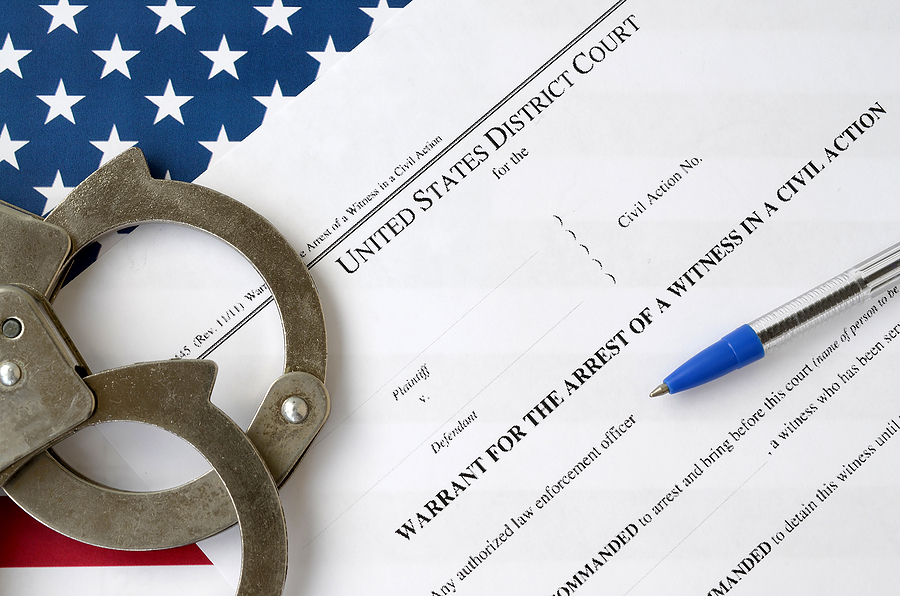If you or someone you know has concerns about an arrest warrant in Indiana, you’re not alone. Whether you’re facing a potential warrant, unsure of its implications, or wondering how to deal with it, understanding the details can help you take control of the situation. This guide breaks down everything you need to know about Indiana arrest warrants—from what they are to what steps you should take if one has been issued in your name.

What is an Arrest Warrant?
An arrest warrant is an official order issued by a judge that grants law enforcement the authority to arrest an individual suspected of a crime. Warrants are typically issued when there is satisfactory evidence, or probable cause, suggesting the individual in question has committed a crime.
Arrest warrants are not public accusations of guilt; they are simply a procedural step ensuring that proper legal measures are followed before someone is detained.
Probable Cause Requirement
To issue an arrest warrant, the court needs probable cause. This means there must be enough evidence to reasonably believe a crime has occurred and that the person named in the warrant is responsible. Probable cause serves as a safeguard against wrongful arrests, ensuring the justice system operates fairly.
What Happens When Probable Cause Is Lacking?
If probable cause is missing, a warrant will not be issued. However, this doesn’t necessarily mean the person is in the clear. Further evidence or new testimony may lead to a warrant being issued at a later time.
Types of Arrest Warrants in Indiana
Not all arrest warrants are the same. Here’s a closer look at the different types issued in Indiana and how each one works.
Bench Warrants
A bench warrant is issued when someone fails to appear in court as required, misses a fine payment, or violates a court order. Bench warrants authorize law enforcement to detain the individual and bring them before the court. Unlike traditional arrest warrants, these are issued for procedural issues rather than for direct criminal allegations.
Example: Missing a court date for a traffic violation may result in a bench warrant.
Search Warrants
Though not an arrest warrant, search warrants are closely related legal tools. A search warrant allows law enforcement to search a specific property for evidence related to an alleged crime. If incriminating evidence is found, it may lead to an arrest warrant being issued.
How to Find Out if You Have a Warrant in Indiana
If you’re unsure whether an arrest warrant exists for you, there are several ways to confirm this information.
- Online Databases: Many counties in Indiana maintain publicly accessible online databases where individuals can search for active warrants.
- Local Sheriff’s Office: Contact your local sheriff’s office to inquire about warrants specific to their jurisdiction. However, take caution with in-person inquiries as law enforcement can detain you if a warrant is active.
- Attorney Assistance: Consulting an attorney is the safest and most comprehensive way to confirm the existence of a warrant.
- Bail Bondsman: Bail bondsmen have access to warrant databases and can provide inmate searches for a fee, but usually for free.
What to Do If You Have a Warrant
Discovering that a warrant has been issued for your arrest can be unsettling, but acting promptly and wisely is essential. Here’s how to handle it:
Contact an Attorney
Your first step should be to consult with a qualified attorney who specializes in criminal law. An attorney will help you understand the charges against you, determine the best course of action, and potentially negotiate terms for your surrender.
Consider Turning Yourself In
Avoiding a warrant could lead to more severe consequences. Instead, consider turning yourself in. Doing so demonstrates cooperation with the legal system, which can work in your favor during court proceedings.
Prearrange a Bail Bond Before Surrendering
One of the smartest steps you can take before turning yourself in is to secure a prearranged bail bond. Working with a bail bondsman in Indianapolis ahead of time ensures you can be released as quickly as possible after your surrender. Bail bonds make the legal process less stressful and allow you to resume your daily life sooner.
Get a Free Bail Estimate Today
Consequences of Ignoring a Warrant
Ignoring an arrest or bench warrant has serious repercussions. Here are the key risks:
- Worsened Charges: Choosing not to address a warrant can lead to additional charges, such as failure to appear in court or contempt of court.
- Unexpected Arrest: Law enforcement can detain you at any time, whether you’re at home, work, or even during a routine traffic stop.
- Loss of Bail Privileges: Some courts may restrict your eligibility for bail if you neglect to address a warrant promptly.
Addressing a warrant immediately can prevent the situation from escalating and demonstrate accountability.
FAQs About Arrest Warrants and Bail
What is an arrest warrant?
An arrest warrant is a legal document issued by a judge or magistrate that authorizes law enforcement to arrest and detain an individual suspected of committing a crime.
How do I find out if there’s a warrant for my arrest?
You can contact your local police department or sheriff’s office to inquire about any outstanding warrants in your name. In some cases, you may also be notified of a warrant through the mail.
Can I be arrested without an arrest warrant?
Yes, under certain circumstances, law enforcement can make an arrest without an active warrant, such as if they witness you committing a crime or have probable cause to believe you committed a crime.
What happens if I am arrested on an outstanding warrant?
If you are arrested on an outstanding warrant, you will be taken into custody and brought before a judge to determine next steps. You may have the opportunity to post bail or be released on your own recognizance until your court date.
It is important to take this situation seriously and seek legal counsel immediately to understand your options and ensure your rights are protected.
Depending on the severity of the warrant and the charges against you, you may face additional penalties or consequences for failing to address the warrant in a timely manner. It is always best to handle any warrants as soon as possible.
Can I Take Care of a Warrant on My Own?
While it is possible to handle a warrant on your own, it is highly recommended that you seek legal advice and representation. A knowledgeable lawyer can guide you through the process and provide a strong defense for your case.
Additionally, attempting to take care of a warrant on your own can be risky as you may unintentionally incriminate yourself or make the situation worse.
RECAP
Understanding your legal situation is the first (and most crucial) step in navigating issues with Indiana arrest warrants. Acting quickly, consulting an attorney, and securing a prearranged bail bond are vital steps in resolving the matter efficiently and safeguarding your future.
Don’t wait until it’s too late. If you or someone you know currently has an outstanding warrant, contact Woods Bail Bonds today for immediate service. We are here to guide you and provide the assistance you need to move forward confidently.
Speak to an Indianapolis Bail Agent Now
Related Post: Behind the Bars: Understanding Indiana Warrants











